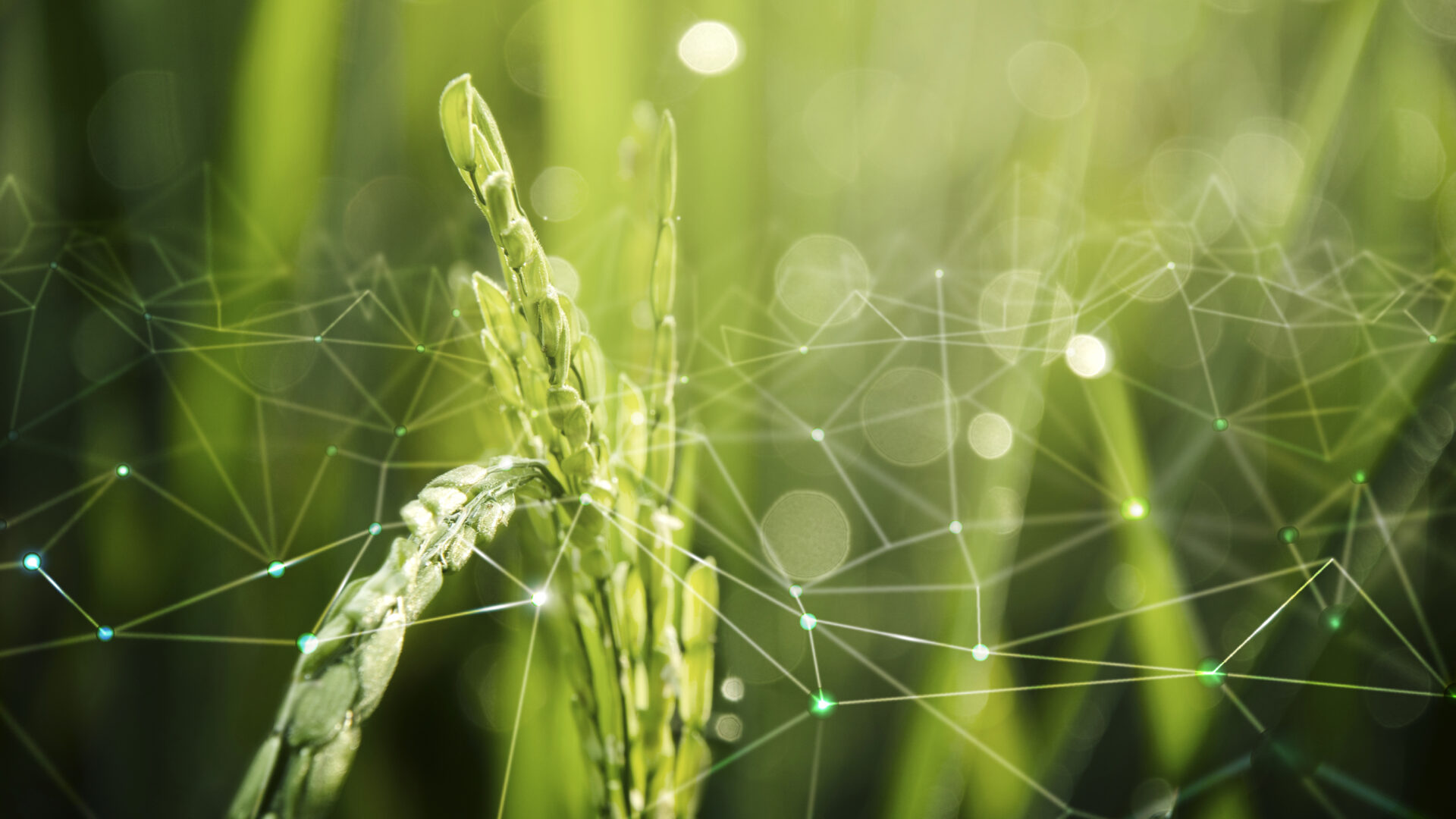Insights > Client Alerts
Client Alerts
Bioinputs Regulatory Frameworks enters into force in Brazil
December 27th, 2024

The Regulatory Framework for Bioinputs ( Law No. 15.070/24, or “Bioinputs Law”) was published on December 24, 2024. It regulates the production, import, export, registration, trade, use, inspection, audit, research, testing, packaging, labeling, advertising, transport, storage, rates, service provision, waste and packaging disposal, and production incentives within the scope of bioinputs for agricultural, livestock, aquaculture, and forestry activities.
The President of Brazil did not veto any provisions of Bill No. 658/21 proposed by representative Zé Vitor (Regional Liberal Party of Minas Gerais), which originated the new law and was approved by the Brazilian House of Representatives and the Federal Senate.
Bioinputs are natural products (such as microorganisms and plant extracts) used in agriculture and livestock to replace other types of chemicals. The Bioinputs Law seeks to increase legal certainty so that farmers and companies can produce in a secure and regulated manner. It applies to all cultivation systems, including conventional, organic, and agroecological systems.
These are the highlights of the new law:
New legal framing
Agricultural biological products (biologicals), which were previously regulated by pesticide and fertilizer laws, will now be governed under the new Bioinputs Law. Bioinputs are plant, animal, or microbial products, including those produced from a biotechnological or structurally similar process that function identically to natural products.
Registration of Establishments and Products (for trade).
The Bioinputs Law states that bioinputs or inocula produced or imported for commercial purposes, biofactories, importers, exporters, and bioinput traders must all be registered with Brazil’s Ministry of Agriculture and Livestock (“MAPA”).
In addition, the Bioinputs Law enables a simplified administrative proceeding for registering already existing comparable products through a procedure to be regulated by the Executive Branch (Articles 3 and 6).
-
- Multiple uses: The new law authorizes a single registration for products that have multiple uses, such as biostimulants and products used to protect and process agricultural products.
-
- ANVISA and IBAMA analysis: Such analysis will only be mandatory for new1 phytosanitary products (plant protection), and the MAPA will be in charge of regulating requirements for other product categories.
Registration Waiver
The following bioinputs are exempt from registration:
-
- Bioinputs produced exclusively for personal use;
- Exclusively mechanical semiochemicals for insect monitoring, such as traps and food baits, whose active ingredients stem from biological fermentation or food and food residues; and
- Products established as low risk by MAPA.
Production for personal use
The production unit for personal use is exempt from registration but remains subject to a simplified registration, which MAPA may waive. In addition, MAPA will define which livestock and aquaculture bioinputs cannot be produced for personal use and will establish good production practices.
-
- Bioinputs for personal use whose active ingredients are microorganisms: They can be produced from isolates, lineages, strains, or variations obtained from accredited germplasm banks, from registered inocula obtained for these purposes, or directly from nature, using local organism communities. Institutions and companies that sell microorganisms must keep sales records for five years, and rural producers must document the lots production.
- Shared production: The production and transport of bioinputs among co-operatives or associates are authorized, provided that there is no sale involved, and they comply with the regulation.
- Import: The import of bioinputs inocula for personal use production will be subject to registration.
Family farming
Family farming units producing bioinputs are exempt from mandatory registration.
Commercial production
Registration holders can adopt revalidation, rework, and reprocessing procedures as provided for by MAPA. Production exclusively for exporting will be exempt from registration but will require prior notice, including details regarding the exported product, its quantities, and destination.
Technical officer
The production of bioinputs for commercial purposes requires the oversight of a technical officer. This officer must be technically qualified (CTE program or higher education) and be accredited by the respective professional regulatory board. In the case of production for personal use, MAPA regulations must establish whether a technical officer is mandatory, whether exclusively or not.
Prohibitions
The personal use of commercial products registered for propagation purposes is prohibited, except for bioinput inocula registered for this purpose. The sale of bioinputs produced for personal use is also prohibited.
Supervision and competence
The MAPA is responsible for supervising the production, import and export of bioinputs, and for registering establishments and commercial products. In turn, state and Federal District agriculture authorities are in charge of supervising the trade, transport, and use of bioinputs within their jurisdictions, in addition to bioinput production for personal use. These agencies use MAPA data to perform their control and supervision activities. Provisional measures, infractions, and penalties will be enforced according to Law No. 14,515/2022 (Self-Control Law).
Environmental licensing
Unlike Bills 658/21 and 3,668/21, the new law does not provide for environmental licensing of personal use and commercial biofactories. This matter will be subject to future regulation.
Financial and tax incentives
The government is responsible for investing resources to stimulate the research, production, and trade of bioinputs. The National Rural Credit System (“SNCR”) can enforce different interest rates for rural producers and their cooperatives that use bioinputs in their production systems, thus encouraging the use of sustainable inputs.
Legislative amendments
-
- Law No. 14,785/2023: Article 2 of the Bioinputs Law will enter into force with several amendments, including updated legal definitions for “active ingredient,” “raw material,” “monograph,” and other terms, in addition to revoking definitions for “biological control agent,” “phytosanitary product for personal use,” “personal production unit,” among other items, in order to align these definitions with the Bioinputs Law.
- Law No. 10,603/2002: The head provision of Article 1 of Law No. 10,603 was amended to include bioinputs in the protection against unfair commercial use of information.
- Law No. 6,894/1980: It was amended to redefine terms such as “fertilizer,” update registration requirements for fertilizer producers and traders, and revoke definitions of “inoculating,” “stimulant or biofertilizer,” and “substrate for plants.”
Transition
Products currently in use and without proper regulation can still be used until a specific regulation is published. Acts and registrations granted prior to the publication of the Bioinputs Law will be confirmed up to their expiration date.
Labels of products already registered must be updated within 12 months from the publication of the Executive Branch regulation. The new label does not need to be approved by the federal authority. The remaining stocks may be sold until they are over unless provided for otherwise.
TREPDA
The Bioinputs Law also establishes a registration fee for agricultural defense establishments and products (“TREPDA”), which is triggered by the administrative exercise of police power and control resulting from the registration activities provided for in the Bioinputs Law. The TREPDA fee ranges from BRL 350 to BRL 3,500 and will be adjusted annually according to the Broad Consumer Price Index (IPCA).
The Bioinputs Law entered into force on its publication date and the Executive Branch has 360 days to regulate it.
Demarest’s Life Sciences and Healthcare and Agribusiness teams are available to provide any further clarifications.
[1] New product: Bioinput containing an ingredient or active ingredient not yet registered or authorized in Brazil.
Related Partners
Related Lawyers
Giulio Gatti
Related Areas
Life Sciences and Healthcare Agribusiness









